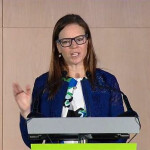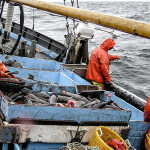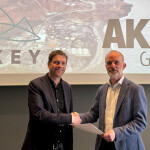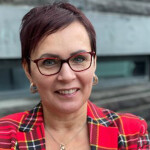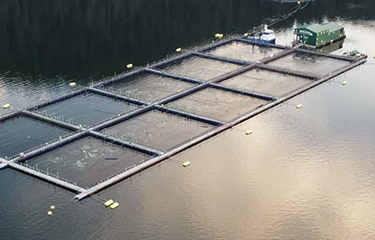The Department of Fisheries and Oceans (DFO) Canada announced on 17 February it will not renew licenses for 15 open-net pen Atlantic salmon farms in the Discovery Islands, located in British Columbia, Canada.
The decision was met with harsh criticism from multiple salmon farming companies, who were “blindsided” by the DFO’s initial announcement in December 2020 that salmon farming in the Discovery Islands would be “phased out” over an 18-month period. That phase out was delayed after a Canadian court decision overturned the closure, with Canada Federal Court Justice Elizabeth Heneghan ruling saying the decision “did not demonstrate a full appreciation for the facts” at the time it was made.
Following that court result, the DFO engaged in another consultation process with the salmon farming industry, First Nations groups, and environmental groups, before ultimately deciding to follow through with the original plan to close salmon farming in the region.
“After extensive consultations with First Nations, industry and others, and after closely considering the submissions received, today, the Honourable Joyce Murray, Minister of Fisheries Oceans, and the Canadian Coast Guard announced her decision not to renew licences for fifteen open-net pen Atlantic salmon aquaculture sites in the Discovery Islands,” the DFO said.
The DFO said it was “taking action to protect wild Pacific salmon” with the closure of the salmon farms.
“Recent science indicates that there is uncertainty with respect to the risks posed by Atlantic salmon aquaculture farms to wild Pacific salmon in the Discovery Islands area, as well as to the cumulative effect of any farm-related impacts on this iconic species,” the DFO said.
Salmon farming companies called the decision by Murray “devastating,” and criticized the government’s process. The B.C. Salmon Farmers Association claimed “anti-salmon farming campaigners” were given an early signal on the DFO’s decision – before the First Nations and industry groups that were affected by it.
“The Federal government continues to demonstrate a lack of care for rural coastal communities and continues to put the interests of activists above the people who grow Canada’s food,” B.C. Salmon Farmers Association Executive Director Brian Kingzett said in a release. “It is unacceptable that activist groups had advance notice, before licence holders and community leaders.”
The decision, Kingzett added, is “devastating for all coastal communities who rely on the aquaculture sector” who were hurt by the original decision to phase out aquaculture.
The initial decision in 2020, according to the B.C. Salmon Farmers Association, shut down 24 percent of B.C.’s salmon production, put 1,500 jobs at risk, and forced the euthanasia of more than 10 million salmon.
Mowi, which had farming operations in the region before the announcement in 2020, said the company had hoped Murray would “correct the flawed previous decision and begin the path to recovery and certainty.” The company was forced to close a salmon hatchery in the wake of the DFO’s decision, and it effectively removed 30 percent of Mowi’s production in B.C. as of 2021. A Mowi spokesperson told SeafoodSource the 17 February, 2023 decision to not renew licenses will not impact the company, as there was no longer any active production in the region.
“We are very disappointed that Minister Murray has decided not to issue any salmon aquaculture licenses in the Laich-kwil-tach territory,” Mowi Canada West Managing Director Diane Morrison said in a release. “This decision, along with previous decisions, continues to raise serious questions about Canada’s commitment to First Nations reconciliation, its food producers, and the health of coastal communities. Our company, along with the Wei Wai Kum and We Wai Kai First Nations, had provided the Minister a very reasonable path forward that would help Canada achieve its stated vision for sustainable aquaculture and advance its Blue Economy Strategy. She has regrettably chosen not to accept this opportunity.”
The Coalition of First Nations for Finfish Stewardship, which formed to assert tribal rights and sovereignty in favor of salmon farming, also slammed Murray’s decision and said it didn’t respect the Laich-kwil-tach First Nations’ (the Wei Wai Kum and We Wai Kai) sovereign authority in the region.
“Today’s decision unfortunately feels beyond procedural unfairness after many months of meetings with the Minister, her department, and DFO staff,” Coalition Spokesperon Dallas Smith said in a release. “The Wei Wai Kum and We Wai Kai First Nations sent a thoughtful proposal to DFO in November to re-issue some licences in their core territories. They put forward a cautionary approach to explore how and if finfish farming could be part of their Nations’ overall vision to manage their marine space. This decision to deny all licences in their territories has sent the Nations back to the drawing board in that regard.”
Smith added the issue isn’t about protecting the salmon farming industry, but about asserting the rights of the First Nations.
“This was not about protecting the sector or the companies operating in it – this was about the sovereignty of the Laich-kwil-tach Nations and their right to decide for themselves whether salmon farming, or any other resource, is the right fit for their marine plans,” Smith said. “Unfortunately, the decision was once again taken away from them by a government located 5,000 kms away from their territories.”
Cermaq Group CEO Steven Rafferty also said the decision is ignoring the affected First Nations’ input on the process in a Linkedin post criticizing the decision. Cermaq had salmon farms in the Discovery Islands, and the company was forced to cull 1.5 million salmon smolt in 2021 when the DFO denied permits for it to transfer them to a different region.
“Minister Joyce Murray and the Canadian Government have taken a decision inconsistent with science, ignores the affected First Nations input to the process, and provides and greatly impacts the employees who have experienced stress and uncertainty from the federal Government’s political processes related to salmon farming,” Rafferty said in his post. “It is a flawed and wrong decision. Our colleagues in Canada have worked so hard, and been under an enormous pressure, they will continue to get our total support.”
Going forward, Kingzett said, the industry will continue to be faced with reduced investment thanks to Murray’s decision.
“This decision will also significantly reduce the sector’s ability to attract required investments for clean technology and innovations to evolve the sector,” he said. “This means we cannot support the Federal Government’s commitment to transforming the sector as we continue to experience uncertainty and reckless decision-making by Ottawa.”
The Canadian Government has made a push to transition away from open-net pen salmon farming to closed containment, land-based farming based on Canadian Prime Minister Justin Trudeau’s Liberal Party platform, released in 2019. However, a recent report commissioned by the B.C. Ministry of Agriculture and Food contains an economic analysis that found land-based salmon recirculating aquaculture system facilities would not be economically viable in the region.
Photo courtesy of the B.C. Salmon Farmers Association

